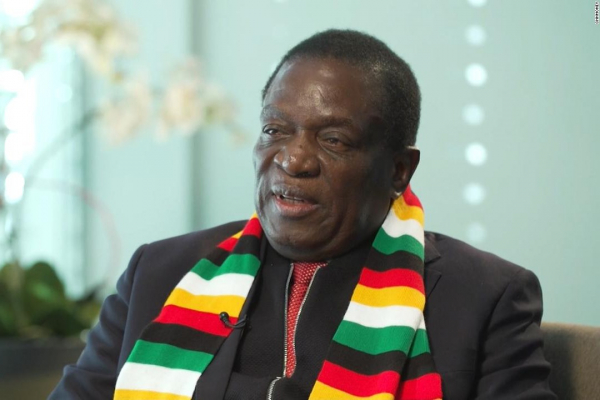
BY RICHARD CHIDZA
PRESIDENT Emmerson Mnangagwa says he was happy to receive criticism over the manner he was handling the economy as many Zimbabweans felt his government had failed to turnaround their fortunes, NewsDay Weekender has heard.
Mnangagwa said he understood the anger among Zimbabweans, given the citizens’ view was that government was losing the battle to turnaround the economy.
In an interview with a group of journalists on Wednesday, Mnangagwa said he had been under pressure to regulate prices of goods, but was refusing.
“The laws of demand and supply must work. As a leader, I know nobody will be happy with austerity measures because they come with a lot of pain,” the President said.
“But my job is to lead the country to where it ought to go not where individuals want. I was and am still aware some of our people will be angry. It’s okay.”
Mnangagwa said his reforms agenda has been progressing well, with government having begun repealing “toxic” laws that had turned the country into an international pariah.
“That is why we have moved quickly to do away with the indigenisation law. The move gained us 11 points on the global ease of doing business last year alone. It was part of a group of statutes that we were advised by the World Bank that they were an impediment to investment. They include the Public Order and Security Act as well as the Access to Information and Protection of Privacy Act,” he said.
- Chamisa under fire over US$120K donation
- Mavhunga puts DeMbare into Chibuku quarterfinals
- Pension funds bet on Cabora Bassa oilfields
- Councils defy govt fire tender directive
Keep Reading
“We did not think it was necessary for an investor to bring $500 million into Zimbabwe and then we turn around and ask for 49% from them just like that.”
Mnangagwa said the country should negotiate with investors and be able to strike deals that benefit Zimbabwe.
“If we fail, we must admit it. This is because as a country an investor comes, brings new technology, employs our people, builds infrastructure, pays taxes and brings new skills. If we can get more out of an investor, the better,” he said.
Mnangagwa said the envisaged Zimbabwe Investment and Development Authority aimed at reducing bureaucracy, which was modelled to resemble the Rwanda Development Board’s, would be up and running by April this year.
During the same interview, the President also said he had no basis to hold talks with MDC leader Nelson Chamisa as long as the opposition politician did not recognise him as the country’s legitimate leader. Mnangagwa also justified the use of lethal force by the military to crackdown on dissent recently.
Civil rights groups reported that at least 12 people were killed by State security apparatuses when a three-day strike called by a labour body, the Zimbabwe Congress of Trade Unions over a 150% fuel prices hike announced by Mnangagwa turned violent.











